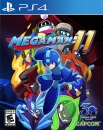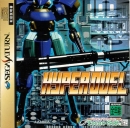I don't think the power of the system is the problem. The problem, and I'm not even sure that is a great word, is that the expectations of gamers have changed such that developers feel the need to improve with every release. And the improvements have to be significant, and easily noticeable. Several generations ago, when I was gaming in the 80s and '90s, you might see multiple releases of a franchise each console generation that were really just more of the same content. They weren't better than their predecessor. They were just more. And that doesn't fly today. Nowadays we expect entirely new game worlds, and we expect more content, better graphics, etc.
The industry has become one where there's a never-ending spiral of more, more, more. Gamers demand more, so developers have to spend more, so the games have to sell more, and the publishers need more revenue streams, and the need to sell more and to develop further revenue streams means they need a larger team to make and maintain the games, and that further increases the need for more sales and more revenue streams. And then we hear about the huge money that the games are bringing in, so gamers expect more and bigger stuff from the next entry. It also increases the risk for the publishers. If they have to spend $50 million to develop a game, they have to be pretty damn sure that that game is going to sell well. Even these big companies generally cannot afford very many misses at those budget levels. So, the cycle continues.
This is mostly just a problem for AAA games though. I actually think that what we currently call indie games are in their healthiest state ever. There was no possibility for three people in three basements in three different places to put together a video game and get that game in front of millions of people on the Xbox or PlayStation stores a few generations ago. This is a relatively new opportunity that the market has opened up, probably largely to fill the void left by the massive budgets and long lead times in the AAA space. The AAA market just cannot take the risks that are possible in the indie scene. The AAA market cannot reasonably provide a continuous stream of new games. So, that void is filled by others.
There are far, far more video games being developed now than there were a few generations ago. Many of those games are shovelware crap, but that was also true in generations past, when the big name publishers were also responsible for the lower budget games (roughly equivalent to current Indies). What we have now is equivalent to what's seen in most mature industries. There are some large, entrenched players that are risk averse, so they concentrate on the established, big name products (your GTAs, CoDs, FIFAa and the like) while upstart groups (independent devs mostly, in this case) are the ones innovating. And, I don't see that as a problem.
Anyway, I think this is just a reality of the maturation of the business of gaming. It isn't due to hardware becoming more powerful. It's due to the business becoming so huge that only megacorps can play at the top levels. And, like it or not, this is just a reality of economics.
Existing User Log In
New User Registration
Register for a free account to gain full access to the VGChartz Network and join our thriving community.









































































